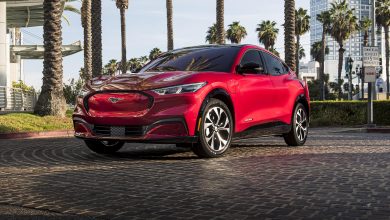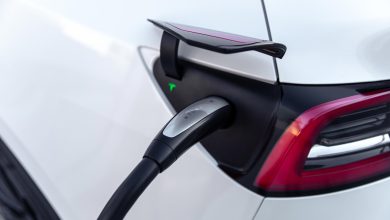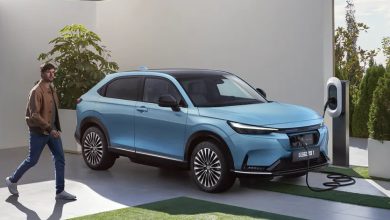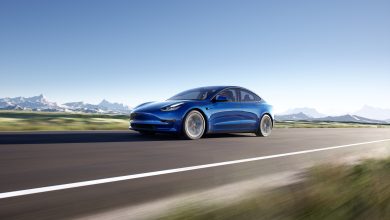Ford Hikes The Price Of F-150 Lightning Again
EV NewsFord enters a $4.5 billion agreement for an Indonesia nickel plant
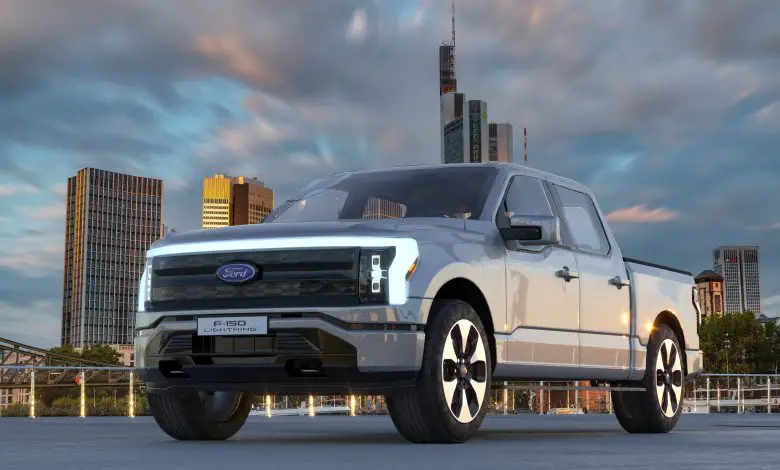
Ford Motor Co. announced price hikes on some models of its popular F-150 Lightning electric pickup. This is the fourth major price adjustment for the electric truck in less than a year since delivery began. According to the company, the price hikes were “in response to current material costs, market factors, and supply chain constraints”.
The move highlights the increasing demand for the electric version of Ford’s popular gasoline-powered F-150 truck. The new price hike adds $4,000 to the base model of the electric truck bringing the total price to $61,869—including the compulsory $1,895 destination charge.
“Ahead of the next wave of commercial order banks opening mid-April, Ford is adjusting the price of the F-150 Lightning Pro MSRP from $55,974 to $59,974,” Ford said, emphasizing that the model is sold out for retail customers.
When the electric F-150 Lightning was first offered for sale, the price was $41,669. The current price increase represents close to a 50% markup of that initial price. Apart from boosted range, no other significant alterations have been made to the truck.
In the latest price hike, the F-150 Lightning Lariat Standard Range was adjusted by $1,500 which inflates the new starting price to $77,869. The price of the F-150 Lightning Platinum was also adjusted by $1,200 which brings the new starting price to $99,969.
For some time, Ford has not provided an update on the volume of its backlog for the F-150 Lightning truck. However, the price hikes in the midst of the EV price war triggered by Tesla suggest the backlog is likely really high.
Ford enters a $4.5 billion agreement with a Chinese partner for an Indonesia nickel plant
Ford announced on March 30, that it plans to invest $4.5 billion in a battery materials Pomalaa facility located in Indonesia. They will be doing this in collaboration with a Chinese mining group, Zhejiang Huayou Cobalt and Brazilian miner PT Vale Indonesia.
The three companies are making equity investments in the Pomalaa Block High-Pressure Acid Leaching (HPAL) Project. Pending regulatory approval, the project is estimated to produce around 120 kilotons of nickel annually in the form of mixed hydroxide precipitate, an affordable nickel product used in EV batteries.
“This agreement shows it’s not just about what we mine—but how we do it,” said Febriany Eddy, CEO of PT Vale Indonesia. “We embed our environmental, social, and governance standards into everything we do, and the result is a unique collaboration with global automaker Ford and leading global mineral processor Huayou to jointly invest in this project.”
Construction of the new facility will likely start before the end of the year while commercial operations will start in 2026. The Pomalaa plant will help to supply the American automaker with the nickel needed to achieve its 2 million annual EV production goal.
However, there are concerns that Ford’s close relationship with China may backfire in Washington. Last month, Ford announced that it would license technology from CATL, one of the largest battery producers. The move drew criticism from some U.S. lawmakers.
Ford’s deepening ties with Chinese companies are coming at a time when President Joe Biden is offering $396 billion of green tax incentives and subsidies to shift the country’s dependence on China’s supply chain as well as position the U.S. as a leader in the clean energy race.
Ford hopes to achieve lower production costs by working with Chinese partners which will allow it to sell EVs cheaper than its competitors. This explains the company’s continued inclusion of China in its supply chain—at the risk of forgoing some or all the tax credits offered by the U.S. government. However, Ford and other automakers have approached the US government for a liberal clarification of the IRA.
“This framework gives Ford direct control to source the nickel we need—in one of the industry’s lowest-cost ways—and allows us to ensure the nickel is mined in line with our company’s sustainability targets, setting the right ESG standards as we scale,” said Lisa Drake, vice president for EV industrialization for Ford Model e.
While Ford believes in its strategy, some U.S. legislators have criticized the approach. Earlier this month, Republican Senator, Marco Rubio of Florida, presented a bill targeted at Ford. The bill sought to outlaw tax credits for EVs that would be manufactured in the future using batteries from the Michigan facility that intends to license Chinese technology.
Sourcing nickel from Indonesia is still a controversial topic for western automakers
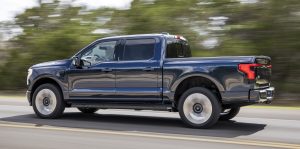
Although Indonesia has the largest nickel reserve in the world, western automakers are cautious about sourcing their nickel from the country. This is because the majority of nickel production in the country is controlled by Chinese companies.
Also, large carbon emissions and waste are generated during the mining process compared to supplies from Australia and Canada. Also, there is controversial talk about human rights abuses by the Chinese. Some mining industry executives expect mineral projects that have Chinese companies with fewer than 50% of a joint venture to be acceptable.
In July 2022, Ford signed a memorandum with its planned Pomalaa plant partners. According to the agreement, Huayou will hold the highest stake (53%) followed by Vale (30%) while Ford will hold the lowest stake (17%). Vale has confirmed the size of its stake in the partnership but Huayou and Ford are yet to do the same.
The Indonesian government has been doing everything possible to attract investors from Europe and the U.S. to its nickel industry. George Fang, senior vice president of Huayou Cobalt, said the Pomalaa project was “one of the flagship projects under the Belt and Road Initiative and Global Maritime Fulcrum synergy”, making reference to China’s investment in infrastructure in developing countries.
An Indonesian official said the Pomalaa plant “shows Indonesia’s supply of commodities needed for EVs is important enough that U.S. companies are willing to work with Chinese partners to secure things like raw material”.
Related
Ford F-150 Lightning Price Hike: Still worth the money?

